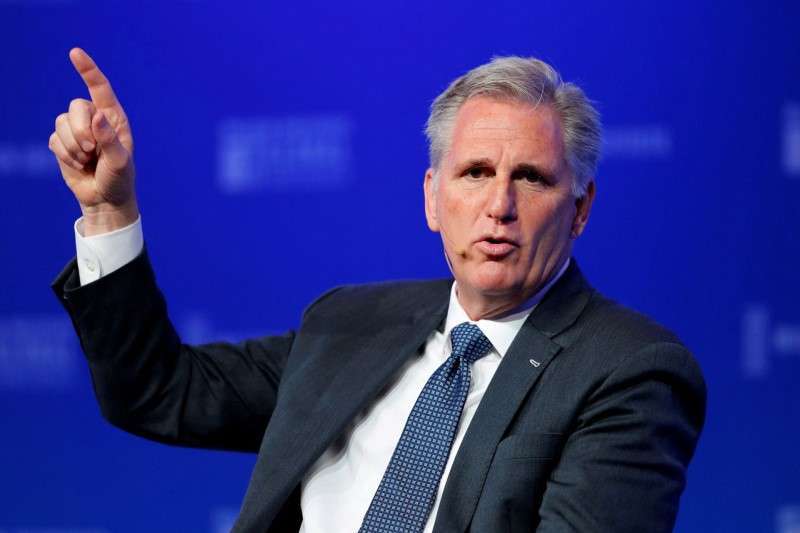With a legislatively authorized internal debt of a ceiling of 31.4 billion dollars, the Treasury Department is fighting tooth and nail to achieve its elevation, since this friday is a little above 31,000 million. This means that in a matter of days the government could paralyze its activities.
In a letter to House Republican Speaker Kevin McCarthy, Treasury Secretary Janet Yellen “respectfully” called on Congress to act quickly to “protect America’s full guarantee” by raising the debt ceiling.
Such “extraordinary measures” may help reduce the amount of outstanding debt subject to the $31.4 billion ceiling, but the Treasury cautioned that these tools would only help for a limited time, likely no more than six months.
“I respectfully urge Congress to act swiftly to protect America’s full guarantee,” Treasury Secretary Janet Yellen said in a letter to House Speaker Kevin McCarthy, Republican.
Yellen said last week that “failure to meet government obligations would cause irreparable damage to the US economy, the livelihoods of all Americans, and global financial stability.”
A default it would damage the credibility of the United States, something that should never happen, warned the executive president of JPMorgan Chase, one of the main banks in the country.
“We should never question the solvency of the United States government,” Jamie Dimon said in an interview with CNBC. “That is sacrosanct. It should never happen.”
But now a dispute has settled between McCarthy and the White House. Republicans are seeking deep cuts in public spending that have been the largest by one administration in the country’s history.
Conservatives argue that sweeping cuts are needed to reduce borrowing, which Congress has generally agreed to increase each year, raising the so-called debt ceiling.
However, the White House has said that these cuts would affect important military and social security spending programs or would mean new taxes.
The White House also vowed that Biden would not negotiate with hardline Republicans, given their “risky and dangerous” opposition to raising the debt ceiling, something that has happened regularly in recent decades. But McCarthy has a dilemma: he needs to cut a deal with Biden anyway, and, what did you say The Hillyou have to “think outside the box” to achieve something.
Thus, it has been necessary to pressure the Democrats to sit down to talk, even if the tough Republicans oppose it.
“Defense needs more than 800,000 million, are there areas in which I think they could be more efficient? Yes. Eliminate all money spent on social issues. Take away all the money that they are spending to find different fuels and are concerned about the environment that they have to go through,” McCarthy said.
While that thought is likely to meet with a cold reception in the Democratic-led Senate, it comes at a time when the Republican leader is trying to balance potentially conflicting demands while navigating a narrow Republican majority in the House.
“There’s evidence that he knows how to negotiate,” Republican strategist Rob Stutzman said of McCarthy. But, he added, “his problem with him has been that he has had to deal with too many people just because of circumstances.”

















